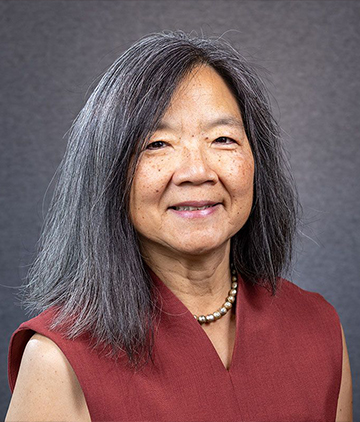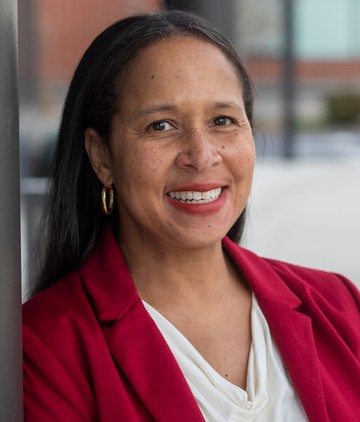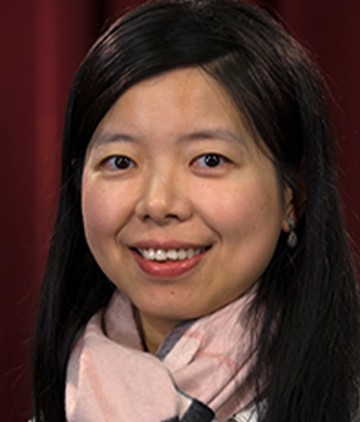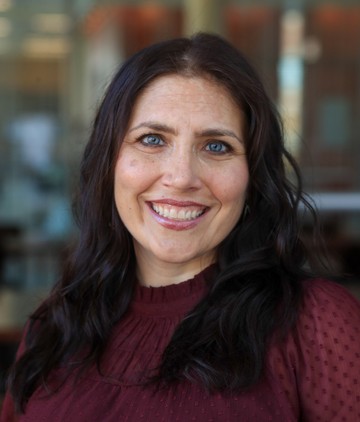About
Learn more about the mission and leadership behind Seattle University's Technology Ethics Initiative.
The Seattle University Technology Ethics Initiative convenes and inspires productive discussions about the role of transformative technologies for a just society. It seeks to deliver programs and resources that shape future leadership across all sectors to harness the power of technology for social good and mitigate the risks and harms arising from the applications of technology.
Vision Statement
The Seattle University Technology Ethics Initiative envisions a community of industry, policy, non-profit and academic leadership that works collaboratively for ethical, just, sustainable, and accessible development of technology for the common good.
Mission Statement
The Seattle University Technology Ethics Initiative creates and disseminates knowledge for the greater good through research, thought leadership, community-building and education that supports the technology ecosystem in Seattle and beyond.
Onur Bakiner
Onur is the director of the Initiative. He is professor of political science. His research and teaching interests include technology & society, human rights, and judicial politics. His current research examines AI governance models.

Margaret Chon
Margaret Chon is faculty director of the Technology, Innovation Law, and Ethics (TILE) Institute and the Donald & Lynda Horowitz Endowed Chair for the Pursuit of Justice at Seattle University School of Law. Author of numerous articles, book chapters and review essays on knowledge governance through intellectual property, she focuses mainly on the role of global intellectual property systems in promoting human flourishing and sustainable development. Her co-edited books include Improving Intellectual Property: A Global Project (with Susy Frankel, Graeme Dinwoodie, Barbara Lauriat, and Jens Schovsbo 2023) and the Cambridge Handbook of Public-Private Partnerships, Intellectual Property, and Sustainable Development (with Pedro Roffe and Ahmed Abdel-Latif, 2018). She is an alumna of the University of Michigan (M.H.S.A. and J.D.) and Cornell University (A.B.), and an elected member of the American Law Institute and the American Bar Foundation.
 Charisse Cowan Pitre
Charisse Cowan Pitre
Charisse Cowan Pitre, Ph.D., is Interim Dean and Professor of Teacher Education in the College of Education. She previously served as Boeing William Allen Endowed Chair 2021 and chair of the Department of Teaching, Learning and Social Justice. Dr. Cowan Pitre’s research focuses on sociocultural and schooling factors related to increased educational opportunities for students from diverse social and economic backgrounds, and her research has been published in a range of scholarly journals and edited books. Under her leadership, working collaboratively with colleagues in the College of Education and the College of Science and Engineering, Seattle University developed and launched the first state approved computer science specialty teaching endorsement for elementary educators in Washington State. In addition to supporting the development of new K-12 teacher education programs, she has served as principal investigator or co-principal investigator of several multi-year external grants to advance equity in elementary and secondary schools. In 2024, she served as principal investigator of a grant project with colleagues that received a $2.67 million U.S. Department of Education award to increase diversity in the teaching profession through collaborative K-12 school partnerships.
 Lin Li
Lin Li
Lin Li earned her Ph.D. in computer science from Clemson University. She joined Seattle University in July 2014. She is currently an Associate Professor in the Computer Science Department. Her primary research interest is the application of machine learning to medical image analysis and computer aided diagnosis. Her current research projects include detection of lesions in fundus images of diabetic retinopathy patients, prediction of mobility decline in individuals with Parkinson’s disease, data fusion for remote soil moisture monitoring, and segmentation of bone marrow lesions on MRI. Professor Li teaches a variety of computer science courses such as foundations of computer science, fundamentals of databases, and big data analytics.
 Caitlin Ring Carlson
Caitlin Ring Carlson
Caitlin Ring Carlson, Ph.D., is a Professor and Chair of the Communication and Media Department at Seattle University. Her research focuses on media law and policy, with an emphasis on hate speech. Carlson is the author of Hate Speech, published by MIT Press in 2021 and The Law of Journalism and Mass Communication (8th ed.), published by Sage in 2023. Her work has been published in leading academic journals such as Communication Law & Policy, Journalism Practice, the Federal Communications Law Journal, and First Amendment Studies. Carlson’s research has also been featured in mainstream media publications including the Wall Street Journal, Wired, and Venture Beat. She earned her PhD in Media Studies from the University of Colorado. Professor Carlson teaches Communication Law, Introduction to Media Studies, and Gender Equality and Freedom of Expression. She comes to academia with a background in Strategic Communication.
 Jeffery Smith
Jeffery Smith
Jeffery Smith is Professor and Frank Shrontz Chair in Professional Ethics in the Albers School of Business and Economics at Seattle University. His work focuses on the philosophical foundations of corporate responsibility, and ethical decision making in organizations. His articles have appeared in Business Ethics Quarterly, Ethical Theory and Moral Practice, and the Journal of Business Ethics, among other journals. He is the co-author of the nationally recognized text Ethics and the Conduct of Business and is past President of the Society for Business Ethics. He has held visiting appointments at Tilburg University in the Netherlands, DePauw University and the Keck Graduate Institute.
Paolo Benanti
Fr. Paolo Benanti is Visiting Distinguished Scholar at Seattle University. He is the force behind the multi-faith Rome Call for AI Ethics, a member of the UN High-level Advisory Board on AI Ethics, and a professor of technology ethics, bioethics, artificial intelligence, and neuroethics at the Pontifical Gregorian University in Rome. He served as Pope Francis’s AI ethics advisor.
Fr. Benanti delivered a lecture at the 2023 Ethics & Tech Conference at Seattle University. He is the author of Homo Faber: The techno-Human condition, Digital age: Teoria del cambio d’epoca. Persona, famiglia e società, Noi e la macchina: Un'etica per l'era digitale, Ricordare troppo: Eccessi di memoria da Borges alle neuroscienze, Postumano, troppo postumano: Neurotecnologie e human enhancement, and Le macchine sapienti: Intelligenze artificiali e decisioni umane, among others. He contributes opinion pieces to Italian dailies regularly.
The Technology Ethics Initiative is funded by Nancy and Chuck Porter.